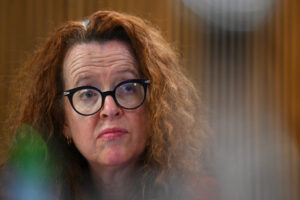Share
In 1922 Herbert Hoover, United States Secretary of Commerce, declared at the first National Radio Conference in Washington, D.C: “It is inconceivable that we should allow so great a possibility for service, for news, for entertainment, for education, and for vital commercial purposes to be drowned in advertising chatter.” By the time Hoover became President just seven years later, the newly created Federal Radio Commission (FRC) had divided up the radio spectrum in ways which favoured established commercial interests, and which ensured that advertising would become the most lucrative way for broadcasters to make money.
Related documents
Between the Lines Newsletter
The biggest stories and the best analysis from the team at the Australia Institute, delivered to your inbox every fortnight.
You might also like
What a power-sharing parliament may hold
Over the course of the election campaign, there’s been a lot of fear-mongering around the prospect of a “hung parliament” or “minority government”.
The system is working, but big parties must heed voters and engage with minor parties
Tasmanians keep voting for a power-sharing parliament over the wishes of the major parties.
Bell’s departure is overdue, but this crisis is not all her fault. Here’s why
Genevieve Bell, vice-chancellor of the Australian National University (ANU), has announced her resignation. Many will welcome this news.



